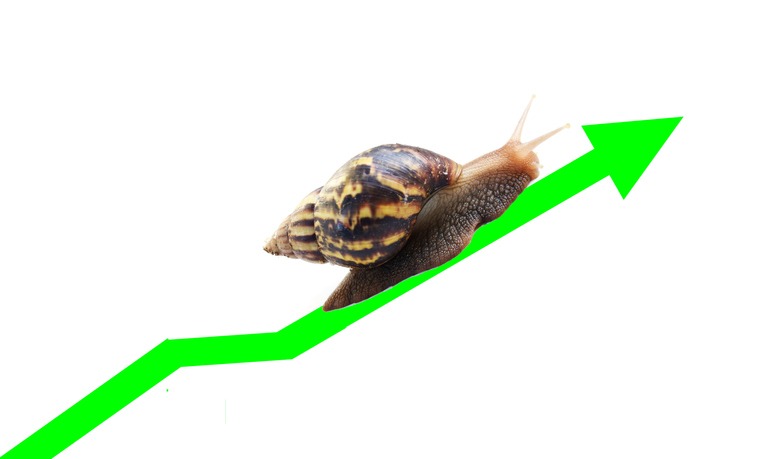June EU new-car registrations highlight the fragility of market recovery
16 July 2021

As COVID-19 continued to disrupt the automotive market in the European Union last year, Autovista24 senior data journalist Neil King examines the latest new-car registrations data against figures released in 2019 to offer a meaningful comparison.
New-car registrations contracted by 14.3% in June, with the volume 175,000 units lower than the same month in 2019, according to the latest new-car registration figures released by the European Automobile Manufacturers’ Association (ACEA).
At first glance, the June figures suggest a significant improvement compared to the 26.7% decline in May. However, there were one or two fewer working days in May this year, depending on the country. Autovista24 estimates that, on an adjusted basis, the true contraction was roughly 20%.
Conversely, there were between one and three additional working days in EU member states in June 2021 compared to June 2019. Accordingly, Autovista24 surmises that the market declined by 22%. This adjusted figure highlights the fragility of the recovery of the EU new-car market as COVID-19 persists and supply constraints further plague the sector due to the shortage of semiconductors.
Most markets suffered double-digit declines in June, although countries including Denmark, Finland and Poland contracted by less than 10%. In the Czech Republic, Estonia, Greece, Ireland and Sweden, registrations exceeded even 2019 levels. Outside of the EU, this was also the case in Iceland and Norway.
Major-market improvements
The big four EU new-car markets all experienced double-digit declines in June, compared with the same period in 2019. However, France, Germany and Italy did see significantly reduced drops compared to May. The downturn in Spain was more severe, but this is because the market was derailed ahead of the reduction in registration taxes that came into effect on 1 July. Early indications point to the country bouncing back in July.
France saw 199,509 registrations of new passenger cars last month, 13.6% fewer than in June 2019. While this looks to be a vast improvement on May’s decline of 27.3%, there were three additional working days last month. On an adjusted basis, Autovista24 estimates the drop to be a more comparable 25.4%. This still represents an improvement, but there is likely to be an impact on new-car registrations this month as incentives for electrically-chargeable vehicles (EVs) were reduced by €1,000 on 1 July.
A total of 274,152 new passenger cars were registered in Germany last month. This equates to a drop of 15.7%., almost halving the 30.7% contraction in May. However, there were three additional working days this year. Accounting for this imbalance, Germany actually experienced a more severe decline of 27.2%.
Meanwhile, Italy’s new-car registrations totalled 149,438, falling by 13.3% last month. This is a significant improvement on the 27.9% decline in May. Italy only had one additional working day last month and adjusting for this, the country saw only a marginally steeper comparative decline of 17.4%. Nevertheless, industry association ANFIA has reiterated the need to support demand with the refinancing of purchase incentives for the 61-135g/km CO2 bracket.
In the traditionally strong month of June, only 96,785 new cars were registered in Spain. This equates to a decrease of 25.8%, which is greater than the 24.1% decline in May. Furthermore, the country had two more working days than in June 2019. Adjusting for this, Spain endured an even more difficult decline of 32.6%. However, the reduction in registration taxes this month, which is in effect until the end of 2021, led many consumers to delay their purchases and activity has rebounded.
‘The entry into force of the temporary reduction of the Registration Tax has doubled the daily registrations of cars and SUVs in July, going from an average of just over 2,000 units per day to more than 4,900 units per day on average since 12 July,’ reports GANVAM, the Spanish car dealers’ association.
Fragility maintains forecasts
In the first half of 2021, the EU new-car market contracted by 22.5% compared to the same period in 2019. This marks an improvement on the fall of 24.2% in the first five months, although the additional working days were a major contributor to this improvement.
The majority of markets have endured double-digit declines thus far in 2021, except for single-digit contractions in Estonia (down 7.1%) and Finland (down 5.9%), as well as 3.1% growth in Sweden. Outside of the EU, new-car registrations through June were 7.3% higher in Norway than in the first half of 2019.
Despite the superficial improvements across the EU in June, Autovista24 has maintained its market forecasts. The recovery remains fragile and is in jeopardy as rising rates of COVID-19 may yet lead to localised restrictions later in the year.
Furthermore, the shortage of semiconductors continues to disrupt supply. This especially impacted the UK in June and may be more detrimental to EU markets in the coming months. The question remains as to whether solutions can be secured in the short term or if supply constraints will delay registrations into 2022 and possibly even beyond. Autovista24 will continue to monitor and report on key developments and revise market forecasts accordingly.


